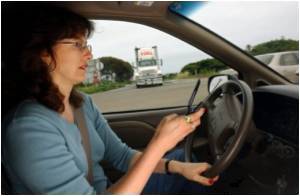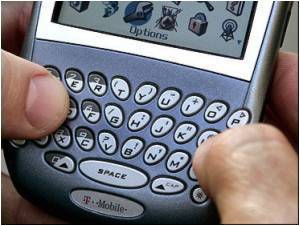Laws which forbid texting while driving have been found to be quite useless and may even be counter-productive, according to a study.

Such regulations are the law of the land in a majority of the country's 50 states, as well as in Washington DC, the first jurisdiction to enact such a ban.
The group said its research actually found a slight increase in the frequency of collision insurance claims filed from crashes in which texting played a role after the laws were enacted.
"Texting bans haven't reduced crashes at all. In a perverse twist, crashes increased in three of the four states we studied after bans were enacted," said Adrian Lund, president of the HLDI.
"It's an indication that texting bans might even increase the risk of texting for drivers who continue to do so despite the laws," he said.
The findings were presented at an annual meeting of the Governors Highway Safety Association.
Advertisement
"Clearly drivers did respond to the bans somehow, and what they might have been doing was moving their phones down and out of sight when they texted, in recognition that what they were doing was illegal," he said in a statement.
The research tabulated the number of collision claims in various US states, including California, Louisiana, Minnesota and Washington state, immediately before and immediately after bans on texting while driving went into effect.
Lund said the findings "call into question the way policymakers are trying to address the problem of distracted driving crashes," Lund added.
He noted that in its earlier research, his car insurance industry group found that banning handheld cellphones also failed to reduce car crashes.
Source-AFP








